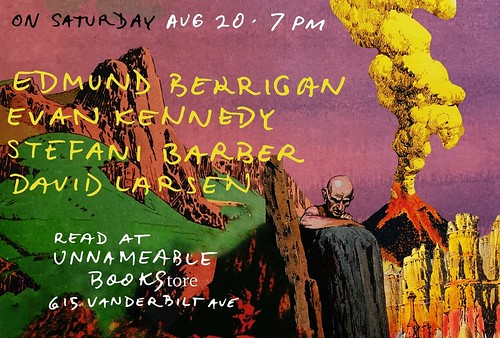Abu 'l-Fath Kushajim elegized a penknife that was stolen from him, saying (meter: basīṭ):
God's war be on the bureau scribes
who think that others' knives are theirs for lifting!
I am the victim of an elegant deceit.
Its edge was like a sword's, honed finely.
Vacant is the resting-place where it had spent an age
beside the inkwell of a man distracted by writing,
now weeping for the blade that Time made away with,
the torturer of pen-nibs raided from me.
It hewed my pens and made them special.
The cuts that vexed them pleasured me,
as I brought laughter to my pages, cloaking them
with flowers, whole beds of them becoming to the eye.
And it was good for spot removal. It scaled away each fleck
and left my pages like the cheeks of calf-eyed maidens.
It had an onyx handle fastened to the blade
by metal pins of gorgeous make and fashion.
Pins of gold and silver, elegant and fine—
a deity, praise to Him, told them to "Be!"
But my cutter turned malicious, taking joy
in infamy, overmastery, and derision.
I kept it close—so close, it impersonated
my aloofness and my lofty rank.
There is no substitute. Long as I live,
I'll never be consoled and never forget.
I'd give up this whole world, and my faith in the world to come,
as ransom for the knife they stole from me.
From The Flowers of Belles-lettres and Fruits of Intellect of Abu Ishaq Ibrahim al-Husri al-Qayrawani










